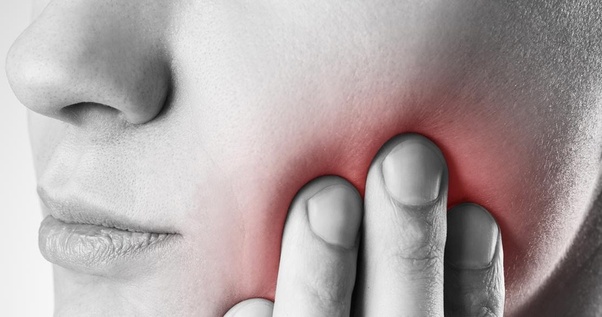Wisdom teeth are the third and last molars on each side of the upper and lower jaws. They are also the final teeth to erupt; they usually come in when a person is in their late teens or early twenties.
Wisdom teeth that only partially emerge or come in crooked can also lead to painful crowding and disease. As teeth removed before age 20 have less developed roots and fewer complications.
Wisdom teeth pain symptoms :
If you still have your wisdom teeth, you may be wondering if you are experiencing wisdom teeth pain. As the wisdom teeth come in, they can be very painful. How can you recognise this unique pain?
You’ll feel wisdom teeth pain at the back of your mouth, behind your molars.
If you look into a mirror, you may even notice that your wisdom teeth have begun to poke through your gums.
The area might also be red, enflamed and tender to the touch.
Some people, however, don’t have any visible symptoms of wisdom teeth pain.
Cause of wisdom teeth :
Painful wisdom teeth can occur for a number of reasons. Perhaps your wisdom teeth have come in crooked, can’t fit properly in your mouth, or have led to an infection around your teeth. Regardless of the cause, painful wisdom teeth can really impact your overall oral health and should be treated immediately.
Wisdom tooth pain can sometimes come out of nowhere, suddenly erupting overnight without warning. On the other hand, wisdom tooth pain can also come on slowly and gradually, and can be shrugged off or perhaps mistaken for something else.
An important first step if you think you may be experiencing wisdom tooth pain is to make an appointment to see your dentist. He or she will be able to evaluate the area, take necessary X-rays, and determine whether or not your pain is truly wisdom tooth pain.
If you are stuck in your home like me with no option to do to the dentist to get your wisdom tooth removed. Here are the few home remedies that you can try that worked for me –
1. Apply ice pack : Wrap a towel around a store-bought ice-pack, small bag of ice, or even a bag of frozen vegetables and apply to the affected area for 15-20 minute intervals every few hours can help alleviate wisdom teeth pain. Applying ice will reduce swelling around the wisdom tooth. Ice can also have a numbing effect which should help reduce pain.
To avoid cold-related injuries ice should not be applied directly on the skin and should not be left on for too long.
2. Over-the-Counter Pain Relievers : They can help temporarily ease the discomfort associated with painful wisdom teeth. Ibuprofen is an over the counter pain relieving medication that should help temporarily reduce pain. Ibuprofen will reduce inflammation, or swelling, therefore relieving the throbbing sensation frequently experienced. It is a temporary aid and should not be used long term.
3. Salt Water : Using a mixture of about eight ounces of water with two teaspoons of salt, rinse to clean your mouth and help dislodge food particles and bacteria that could be causing a painful infection.
Wisdom tooth extraction is not an option for some people due to potential risk for complications, bleeding disorders, or some other cause. In these cases, your dentist may recommend the pain management options like those mentioned above. In cases where wisdom tooth extraction is not an option, your dentist may also prescribe a special mouth rinse that will clean your mouth after meals and kill bacteria that could potentially cause infection.
4. Clove Oil/ Clove Buds : Cloves contain an ingredient called eugenol which can act as a numbing agent and may also reduce inflammation and help elevate your wisdom teeth pain. Moisten a cotton ball with clove oil and place the cotton ball on the wisdom tooth. Allow the cotton ball to sit for 5-15 minutes before removing and throwing away.
If the clove oil is too strong, try diluting it with coconut oil. Repeat as needed throughout the day. In place of clove oil crush a clove bud and tuck into the side of the cheek. Leave in place for 5-15 minutes then remove and dispose of the crushed clove.
5. Use Turmeric as a Rub or Paste : Turmeric is often suggested as a home remedy for all sorts of ailments. It is believed to have analgesic and anti-inflammatory properties; therefore, it may also help reduce wisdom teeth pain. Try rubbing loose turmeric on the sore gums.
A paste could also be made by mixing baking powder, toothpaste, and turmeric. Rub the paste around the wisdom teeth and let sit for several minutes before rinsing out.
Wisdom tooth extraction is not an option for some people due to potential risk for complications, bleeding disorders, or some other cause. In these cases, your dentist may recommend the pain management options like those mentioned above. In cases where wisdom tooth extraction is not an option, your dentist may also prescribe a special mouth rinse that will clean your mouth after meals and kill bacteria that could potentially cause infection.
Wisdom tooth pain should not be taken lightly. While at-home pain management is an option for some patients, in most cases wisdom tooth extraction is the best way to alleviate wisdom tooth pain and protect your oral and overall health and well-being.
